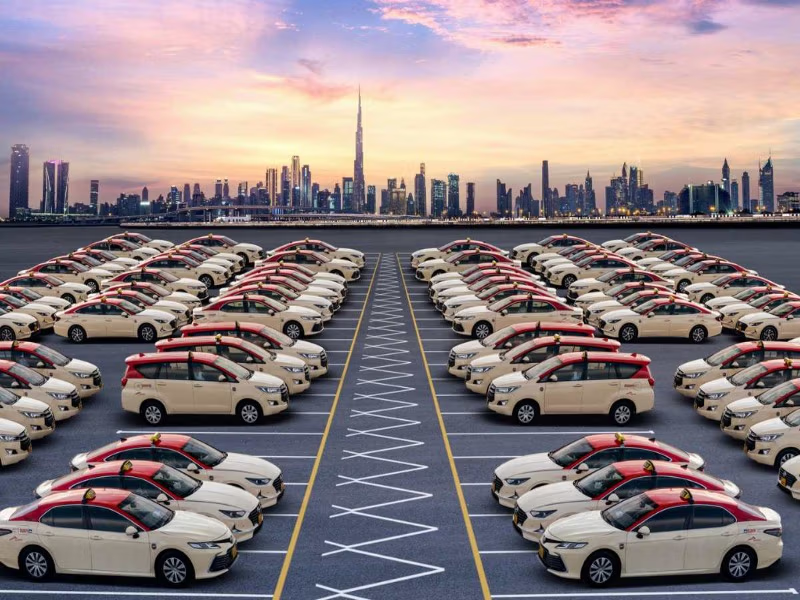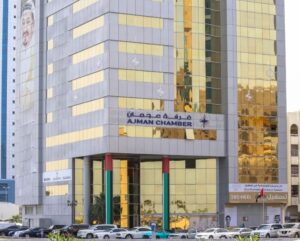Dubai Taxi Company declared its third-quarter and first nine-month 2025 financial outcomes on Tuesday.
In Q3 2025, the company reported a strong operational and financial performance as it is supported by its ongoing fleet expansion and persistent demand in its mobility segments.
Net profit in Q3 2025 rose by a year-on-year increase of 28 percent to AED76.4 million ($20.80 million), and represents a net profit margin of 13 percent, indicating a robust growth in operating profit.
The quarterly revenue increased by 15 percent as compared to the prior year to AED585.3 million ($159.37 million) due to the expansion of the fleet and an increase in the number of trips.
In the case of 9M 2025, revenue growth was 13 percent, year-on-year to AED1.8 billion, which demonstrates a continuity of momentum and execution across the year.
The EBITDA of Dubai Taxi Company showed continued growth of 23 percent on a year-on-year basis to AED151.4 million in the third quarter of 2025 due to increased volumes of trips made and revenue generated, and a lesser impact of promotions by the subsidiary of DTC, Bolt e-hailing, which is integrated into the operations of Dubai Taxi Company.
The EBITDA margin recorded an improvement of 2 percentage points in the third quarter to reach 26 percent, which was a factor supporting the EBITDA margin of 27 percent for the nine months as the firm continued to spearhead operational efficiencies.
The balance sheet of Dubai Taxi Company is also in excellent health, as the net debt-to-EBITDA ratio of the company stands at 1.5x and the cash balance of AED68 million as of September 30, 2025.
The company had paid a dividend of AED160.7 million in August 2025 in the form of the H1 2025 dividend of AED6.43 fils per share, as it is part of the policy of the company to distribute dividends exceeding 85 percent of annual net profit.
Dubai Taxi Company’s CEO, Mansoor Rahma Alfalasi, said, “Our third-quarter performance builds on the strong momentum established in the first half of 2025, reflecting our disciplined execution and continued operational excellence. We delivered strong results across all key metrics, with robust revenue growth and profitability supported by sustained demand in our taxi, limousine, and delivery segments, underpinned by Dubai’s expanding tourism and population base.”
The taxi segment of Dubai Taxi Company has seen its increase in revenue by 12 percent year-on-year to AED506.0 million, which has been a result of fleet expansion coupled with high utilization rates.
The total number of taxis operated by the company had been 6,215 vehicles by September 2025, of which 401 were fully electric vehicles as the company continued to transition to a more sustainable offering.
The limousine segment reached stable revenue expansion of 1 percent year-on-year to 27.8 million in Q3 2025, backed by the ongoing growth of its fleet.
Therefore, the bus segment revenue is AED29.8 million for Q3 2025, indicating a 90 percent growth year-on-year, mainly a modification of contractual terms with a large customer.
The bike segment of the company has also continued its growth momentum as reaching robust revenue expansion in Q3 2025, by surging 62 percent year-on-year to AED18.3 million, supported by ongoing expansion in the fast-growing on-demand delivery market.
Dubai Taxi Company recorded 13.1 million journeys in its taxi and limo sectors in Q3 2025, an increase of 7 percent year-on-year, which was helped by the sustained tourism growth in Dubai and its ever-increasing fleet productivity.
By September 2025, the total operational fleet of the company in all segments was growing by 19 percent, up to 10,500, which represents a successful capacity scaling strategy of the company.
Alfalasi stated that “A key highlight this quarter was the launch of our strategic partnership with Kabi, marking a major milestone in advancing Dubai’s e-hailing ecosystem. By uniting two of the city’s leading mobility players, we are driving innovation, efficiency, and sustainability in line with Dubai’s vision to transition 80 percent of taxi trips to e-hailing. As we continue to execute our strategy, we remain focused on expanding smart, customer-centric mobility solutions and advancing our long-term sustainability agenda, reinforced by our commitment to a fully electric fleet by 2040.”
Dubai Taxi Company is well-positioned to achieve long-term growth that will be backed by the macroeconomic fundamentals of Dubai, further population growth and tourism growth, and investment in transport infrastructure.
Having a rigorous focus on productivity, digital empowerment, and optimisation of the fleet, Dubai Taxi Company plans to improve margins as it moves towards its long-term objective of complete fleet electrification by 2040.
The company is still evaluating new mobility and technology integration to improve the integration of services and open up new sources of revenue across its expanding ecosystem.






